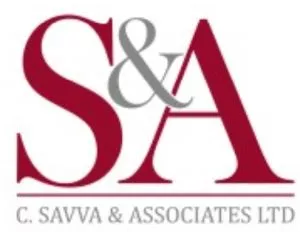- within Tax topic(s)
- with readers working within the Accounting & Consultancy industries
- with readers working within the Media & Information and Telecomms industries
Introduction to VAT Exemptions in Cyprus
The Cyprus VAT system, governed by the Value Added Tax Law (N.95(I)/2000), imposes VAT on most goods and services at standard and reduced rates. However, certain activities are VAT-exempt, meaning they do not attract VAT, and businesses engaged in these activities cannot claim input VAT on related expenses.
What Does VAT Exemption Mean?
VAT-exempt activities differ from zero-rated transactions. While zero-rated supplies allow businesses to reclaim input VAT, VAT-exempt activities do not permit VAT recovery. This distinction is crucial for businesses determining their VAT obligations and cost structures.
List of VAT-Exempt Activities in Cyprus
The Cyprus VAT Law provides a list of exempt activities, which include the following:
- Financial and Insurance Services
- Banking transactions such as deposits, loans, and credit provision.
- Insurance and reinsurance services, including life insurance policies.
- The management of investment funds.
- Educational Services
- Public and private educational institutions offering primary, secondary, and higher education.
- Vocational training and professional development courses recognized by competent authorities.
- Healthcare and Medical Services
- Services provided by doctors, dentists, and other medical professionals.
- Hospital and clinical care services.
- The supply of human organs, blood, and breast milk.
- Real Estate Transactions
- The sale of immovable property that has been used for more than five years (i.e., second-hand properties).
- Rental of residential property, unless provided by a taxable person in the course of their business.
- Transfers of land (with some exceptions for new commercial properties).
- Cultural and Non-Profit Activities
- Services provided by non-profit organizations (charities, religious institutions, and social welfare bodies).
- Certain cultural events such as theatre performances and concerts.
- Postal Services
- Services provided by the national postal operator relating to standard mail deliveries.
- Betting, Gambling, and Lotteries
- Revenue from licensed gambling activities, betting, and lottery games.
Implications of VAT Exemption for Businesses
Businesses that engage in VAT-exempt activities should consider the following:
- No VAT Registration Obligation: Businesses solely providing exempt supplies do not need to register for VAT.
- No Input VAT Recovery: Since VAT is not charged on exempt supplies, businesses cannot reclaim VAT on expenses related to these activities, increasing operational costs.
- Partial Exemption for Mixed Activities: Businesses engaged in both VAT-taxable and VAT-exempt activities may have limited input VAT recovery, depending on the proportion of taxable activities.
Conclusion
Understanding VAT-exempt activities is essential for businesses operating in Cyprus, as it directly affects their VAT registration, reporting obligations, and cost management. Companies engaged in exempt activities must carefully assess their VAT exposure and ensure compliance with Cyprus VAT regulations.
For businesses with mixed supplies or those unsure about their VAT status, seeking professional tax advice can help optimize VAT efficiency while ensuring compliance with Cyprus tax laws.
The content of this article is intended to provide a general guide to the subject matter. Specialist advice should be sought about your specific circumstances.




